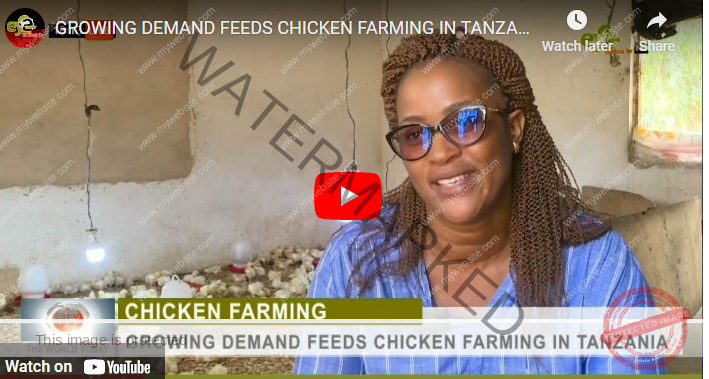Agriculture is a crucial sector for Canada’s economy, contributing significantly to the country’s GDP and creating numerous job opportunities. As the world’s second-largest country by land area, Canada has a diverse range of agricultural products, including grains, vegetables, fruits, livestock, and dairy.
The agriculture industry is also vital to Canada’s food security and plays a critical role in feeding the country’s population. In this article, we will explore 25 fascinating facts about agriculture in Canada, including information on crop production, exports, livestock, and more.
These facts will provide insight into the significance of agriculture in Canada and the industry’s impact on the country’s economy and society.
25 Agriculture Facts In Canada
These 25 facts cover various aspects of the agriculture industry, including crop production, exports, and livestock, and provide insights into the challenges and opportunities facing the sector.
By understanding these facts, individuals can gain a more comprehensive understanding of the role of agriculture in Canada’s past, present, and future.
Read Also: 12 Top Agricultural Producing Countries
Fact 1: Agriculture is One of Canada’s Largest Industries
The Canadian agriculture industry is a major economic contributor, contributing over $100 billion to the economy annually, and with a significant impact on the country’s overall GDP.
The industry employs over 2.3 million people and generates billions of dollars in revenue each year. The industry includes a wide range of sub-sectors, such as crop production, livestock production, food processing, and agri-business.
Fact 2: There Are Over 200,000 Farms Operating In Canada, Covering over 160 Million Acres of Land
Canada has a diverse range of farms, ranging from small family-owned operations to large commercial farms. The country’s vast landscape provides ample space for agriculture, with farms operating across all 10 provinces and three territories.
Read Also: 25 Agriculture Facts In California
These farms produce a wide range of crops and livestock, including grains, oilseeds, vegetables, fruits, dairy, poultry, beef, pork, and more.
Fact 3: The Average Farm Size In Canada Is 820 Acres
While there is a significant range in farm sizes across Canada, the average farm size is 820 acres. This is much larger than the global average, which is around 150 acres.
The larger farm size in Canada is due in part to the country’s vast and sparsely populated landscape, as well as the use of modern farm equipment and technology.
Fact 4: Canada is a Major Producer of Grains and Oil Seeds
Canada is a major producer of grains and oilseeds, with wheat, canola, and soybeans being the top three crops in terms of production.
These crops are grown across the country, with regions such as the Prairie provinces being particularly suited for their production.
Read Also: Richest Sikh Farmers In California
These crops are not only important for the domestic market but are also significant exports for Canada.
Fact 5: Canada is the world’s Largest Producer of Lentils and Peas
Canada is a major producer of pulses, which include crops such as lentils, peas, chickpeas, and beans.
These crops are an important source of protein for both domestic and international markets.
Canada is the world’s largest producer and exporter of lentils and peas, with much of the production coming from the Prairie provinces.
Fact 6: Canada Is The Third-Largest Exporter Of Beef In The World Behind Brazil and Australia
The Canadian beef industry is a significant player in the global market, with exports reaching over $3 billion annually. The industry is centered in the Prairie provinces, where there is ample grazing land for cattle.
Read Also: Richest Poultry Farmer In South Africa
The industry is also known for its high-quality beef, with much of the production being grass-fed and free-range.
Fact 7: Ontario and Quebec are the Two Largest Agricultural Provinces in Canada
While agriculture is practiced across Canada, the majority of the production comes from Ontario and Quebec.
These two provinces have the most diverse agricultural sectors in the country, with a wide range of crops and livestock being produced.
These provinces are also significant exporters of agricultural products, with much of the production going to the United States.
Fact 8: The Dairy Industry Is The Largest Sector Of Canadian Agriculture
The Canadian dairy industry is a major player in the country’s agriculture sector, with over 220,000 dairy cows producing over 9 billion litres of milk each year.
The industry is highly regulated, with supply management policies in place to ensure stable prices and production levels.
Read Also: Richest Poultry Farmer In Ghana
The industry is centered in Ontario and Quebec, although there are significant dairy operations in other parts of the country as well.
Fact 9: Over 63 million Hectares Of Land Is Used For Growing Crops And Raising Livestock In Canada
Agriculture is a major land use in Canada, with over 63 million hectares of land being used for farming. This represents around 7% of the country’s total land area. The majority of this
land is used for crop production, with around 40 million hectares being used for growing crops. Livestock production, including beef, dairy, poultry, and pork, accounts for around 20 million hectares of land use.
The remaining land is used for other agricultural purposes such as horticulture, aquaculture, and forestry.
Fact 10: Over 70% Of Canadian Agricultural Production Is Exported
Canada is a major exporter of agricultural products, with over 70% of the country’s agricultural production being exported.
Read Also: Richest Pig Farmer In Zambia
The United States is the largest export market for Canadian agricultural products, followed by China, Japan, and Mexico.
The export of agricultural products is a significant driver of the Canadian economy, generating billions of dollars in revenue and creating jobs in the transportation, logistics, and processing sectors.
Fact 11: Canada is The World’s Fifth-Largest Exporter of Agricultural Products, with the Majority Of Its Exports Going To The United States, China, And Japan
Canada’s agricultural exports play a significant role in the global market, with the country ranking as the fifth-largest exporter of agricultural products in the world.
The United States is the largest market for Canadian agricultural products, accounting for approximately 50% of all Canadian agricultural exports.
China and Japan are the second and third-largest markets respectively.
Read Also: Richest Pig Farmer In The World
Fact 12: Canada has a Reputation for Producing High-Quality, Safe, and Sustainable Food
Canadian agricultural products are known for their high quality, safety, and sustainability. Canada has strict regulations and standards in place to ensure the safety and quality of its food products.
Canadian farmers use sustainable practices to produce their crops and raise their livestock, and the industry is committed to minimizing its environmental impact.
Fact 13: Agriculture Employs over 2.3 million Canadians
The agriculture and agri-food industry is a significant employer in Canada, with over 2.3 million Canadians employed in the sector.
Read Also: Top 5 Richest Dairy Farmers In India
This includes farmers, farm workers, food processors, truck drivers, and other workers involved in the production and distribution of food products.
The industry contributes to the economic growth of rural communities across the country.
Fact 14: The Agriculture and Agri-Food Industry is the Third-Largest Employer in Canada
The agriculture and agri-food industry is the third-largest employer in Canada, behind only the healthcare and retail sectors. The industry is a significant contributor to the Canadian economy, generating billions of dollars in revenue and creating jobs across the country.
Fact 15: The Average Age of Canadian Farmers is 55 Years Old
The average age of Canadian farmers is 55 years old, which has raised concerns about the future of the industry as older farmers retire.
Efforts are being made to encourage younger Canadians to pursue careers in agriculture and to support the next generation of farmers.
Fact 16: The Number Of Young Farmers Under 35 Years Old Is Increasing In Canada
Despite the average age of Canadian farmers being relatively high, the number of young farmers under 35 years old is increasing in Canada. This is seen as a positive development for the industry, as younger farmers bring new ideas, energy, and enthusiasm to the sector.
Fact 17: Canada has a Diverse Climate and Geography, allowing for a Wide Range Of Crops to be Grown
Canada’s diverse climate and geography allow for a wide range of crops to be grown across the country. From wheat in the Prairies to fruit in the Okanagan Valley, and from potatoes in Prince Edward Island to grapes in Ontario, Canada’s agricultural industry is highly diverse.
Fact 18: Saskatchewan is the Largest Producer of Wheat in Canada
Saskatchewan is the largest producer of wheat in Canada, accounting for approximately 58% of the country’s wheat production. The province’s vast prairies and fertile soil make it an ideal location for growing wheat, which is used in a variety of food products around the world.
Fact 19: Manitoba Is The Largest Producer Of Canola In Canada
Canola is an important crop for the Canadian agricultural industry, and Manitoba is the largest producer of canola in the country, accounting for approximately 32% of Canada’s canola production.
Canola is a versatile crop used for a variety of purposes, including cooking oil, animal feed, and biodiesel.
Fact 20: The Potato is the most Widely Grown Vegetable Crop in Canada
Potatoes are the most widely grown vegetable crop in Canada, with approximately 159,000 hectares of land dedicated to potato production.
The potato is a staple food in Canadian cuisine and is used in a variety of dishes, including french fries, mashed potatoes, and potato salad.
Fact 21: The Majority of Canadian Farms are Family-owned and Operated
The Canadian agricultural industry is characterized by family-owned and operated farms, with approximately 97% of Canadian farms being family-owned.
This has led to a strong sense of community and a commitment to sustainability and responsible stewardship of the land.
Fact 22: Agriculture Contributes to the Conservation of Natural Resources, such as Soil and Water
Agriculture is a key player in the conservation of natural resources in Canada. Farmers use sustainable practices to manage their land and water resources, including crop rotation, soil conservation, and water management techniques. These practices help to protect and conserve Canada’s natural resources for future generations.
Fact 23: The Production of Maple Syrup is a Significant Industry in Canada
Maple syrup production is an important industry in Canada, with over 10 million taps producing over 60 million litres of syrup annually.
Majority of production taking place in Quebec and Ontario. The production of maple syrup is a highly specialized process that requires specific environmental conditions and careful management of the maple trees.
The syrup is used in a variety of dishes, including pancakes, waffles, and desserts.
Fact 24: Quebec Is Canada’s Largest Maple Syrup Producer
Quebec produce over 70% of the country’s maple syrup, making it the largest maple syrup producer in Canada.
The province’s unique climate and geography make it an ideal location for maple syrup production, and Quebec’s producers are highly skilled and committed to producing high-quality syrup.
Fact 25: The Canadian agricultural sector is constantly evolving
The Canadian agricultural sector is constantly evolving, with new technologies and practices being developed and implemented to increase productivity and sustainability.
From precision agriculture and the use of drones to sustainable farming practices and the adoption of new crop varieties, Canadian farmers are committed to innovation and to producing high-quality, safe, and sustainable food for Canadians and for the world.
Benefits of Agriculture in Canada
Agriculture is an important industry in Canada, contributing over $100 billion to the economy annually.
In addition to economic benefits, agriculture also provides environmental and social benefits, including carbon sequestration, habitat preservation, and community development.
Other benefits of agriculture in Canada include:
- Job creation: Agriculture provides employment opportunities for over 2.3 million Canadians.
- Food security: Canadian agriculture helps to ensure that Canadians have access to a reliable and safe food supply.
- Trade opportunities: Canadian agricultural products are in high demand around the world, creating opportunities for trade and economic growth.
- Innovation: Canadian farmers are constantly adopting new technologies and practices to increase productivity and sustainability.
- Rural development: Agriculture plays a key role in the development and sustainability of rural communities across Canada.
Challenges Facing Canada’s Agricultural Sector
While Canadian agriculture offers many benefits, it also faces a number of challenges. These challenges include:
- Climate change: Changing weather patterns and extreme weather events can have a significant impact on crop yields and production.
- Land use pressures: As Canada’s population grows, there is increasing pressure on land resources for development, leading to competition with agriculture.
- Labour shortages: The agriculture sector in Canada relies heavily on foreign workers, and labour shortages can impact production.
- Market volatility: Fluctuating commodity prices can impact the profitability of Canadian farmers.
- Trade barriers: International trade barriers can limit the export opportunities for Canadian agricultural products.
Best Agricultural Practices in Canada
Canadian farmers are committed to sustainable and responsible land use practices, and there are a number of best agricultural practices that are widely used in Canada. These practices include:
- Crop rotation: Alternating crops on a field helps to maintain soil health and fertility.
- Integrated pest management: A combination of biological, cultural, and chemical control methods is used to manage pests and reduce the need for pesticides.
- Soil conservation: Practices such as conservation tillage and cover cropping are used to protect soil health and reduce erosion.
- Water management: Farmers use a range of techniques to manage water resources, including drip irrigation and water recycling.
- Precision agriculture: New technologies such as GPS and remote sensing are used to increase efficiency and reduce inputs.
Is Agriculture Profitable in Canada
The profitability of agriculture in Canada varies depending on a number of factors, including crop choice, location, and market conditions.
While some farmers struggle to make ends meet, others are highly successful and profitable. Factors that can impact profitability include:
- Access to markets: Proximity to markets and transportation infrastructure can impact the profitability of Canadian farmers.
- Input costs: Inputs such as seeds, fertilizers, and fuel can be expensive, impacting profitability.
- Commodity prices: Fluctuating commodity prices can impact the profitability of Canadian farmers.
- Yield: Higher yields can increase profitability, but can also require higher inputs.
- Risk management: Effective risk management strategies can help farmers mitigate financial risks and increase profitability.
Importance of Agriculture in Canada’s Economy
Agriculture is a major contributor to the Canadian economy, providing employment, trade opportunities, and economic growth. Some key economic benefits of agriculture in Canada include:
- Job creation: Agriculture provides employment for over 2.3 million Canadians.
- Trade opportunities: Canadian agricultural products are in high demand around the world, creating opportunities for trade and economic growth.
- Economic impact: Agriculture contributes over $100 billion to the Canadian economy annually.
- Rural development: Agriculture plays a key role in the development and sustainability of rural communities across Canada.
- Food security: Canadian agriculture helps to ensure that Canadians have access to a reliable and safe food supply.
Major Crops Grown in Canada
Canada has a diverse climate and geography that allows for a wide range of crops to be grown.
The top three crops grown in Canada are wheat, canola, and soybeans. Other major crops include barley, oats, corn, potatoes, and pulses (lentils, peas, and chickpeas).
Canada is also known for its fruit and vegetable production, including apples, berries, grapes, and tomatoes.
Agriculture In Canada
Agriculture in Canada has a rich history and continues to be an important industry today.
Canada is home to vast expanses of fertile land, which allows the country to produce a wide variety of crops and livestock.
From coast to coast, farmers work hard to grow the food that feeds Canadians and people around the world.
Farming In Canada Today
Farming in Canada today is a diverse and dynamic industry. While traditional crops like wheat and canola remain important, farmers are also branching out into new areas such as hemp, hops, and specialty fruits and vegetables.
Livestock production is also a major part of farming in Canada, with beef, pork, and poultry being important sources of protein for Canadians and international markets.
Canada Agriculture Statistics
Canada agriculture statistics show that the industry is an important contributor to the Canadian economy.
In 2022, agriculture and agri-food industries contributed $193 billion to Canada’s gross domestic product (GDP) and employed over 2.3 million people. Canada is also a major exporter of agricultural products, with exports totaling $97 billion in 2022.
Percentage Of Farmers In Canada
Despite the importance of agriculture to the Canadian economy, the percentage of farmers in Canada has been declining in recent years. In 2022, there were approximately 193,500 farms in Canada, down from over 200,000 in 2011. However, the size of farms has been increasing, with larger farms accounting for a greater share of agricultural production.
Ontario Agriculture Facts
Ontario agriculture facts show that the province is a major contributor to Canada’s agricultural industry. Ontario is home to over 50,000 farms, which produce a wide variety of crops and livestock.
The province is particularly known for its fruit and vegetable production, with over 80% of Canada’s tender fruit and grape production coming from Ontario.
Conclusion
Canada’s agriculture sector is a vital part of its economy, providing jobs and contributing significantly to the country’s GDP. With vast land resources, favorable weather conditions, and advanced technological innovations, Canada continues to be a major producer and exporter of various agricultural products. These 25 agriculture facts highlight the diversity and importance of the industry in Canada, and its significant contribution to global food security.




One Reply to “25 Agriculture Facts In Canada [All You Need To Know]”